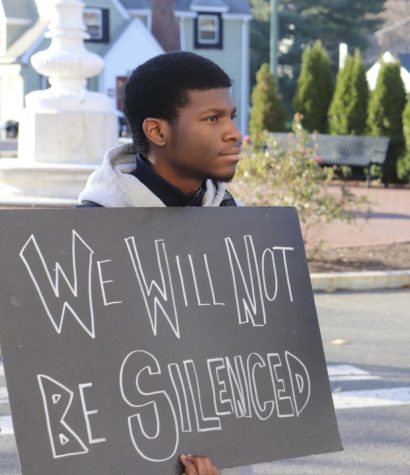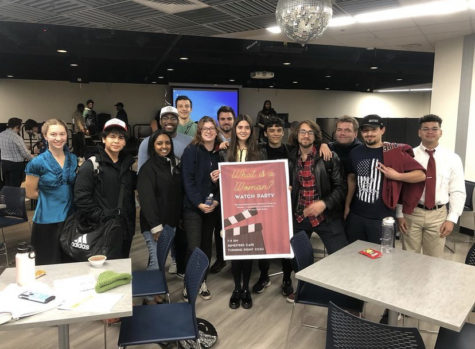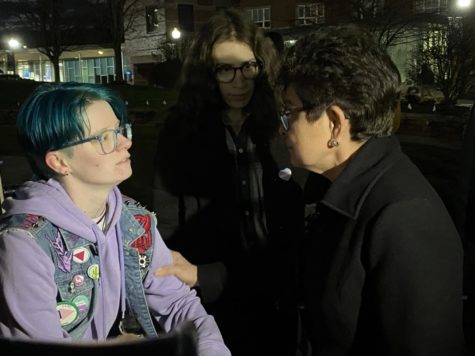Accountability is Not Oppression
Sen. Ted Cruz critiques the anti-racist novels used in Georgetown Day School, where Justice Jackson serves on the board of trustees.
May 4, 2022
Accountability, traditionally considered an American core value, is often received as oppression when it comes to taking responsibility for the racist structures our country was built on and continues to uphold.
Judge Ketanji Brown Jackson, the first Black woman on the supreme court, was interrogated by U.S Senator Ted Cruz about Critical Race Theory (CRT) at her confirmation hearings for the Supreme Court.
“It doesn’t come up in my work as a judge. It’s never something that I’ve studied or relied on, and it wouldn’t be something I relied on if I was on the Supreme Court,” said Jackson
Despite being unrelated to Judge Jackson’s role in the Supreme Court, Cruz continued hammering on the topic. He specifically focused on the book “Anti-Racist Baby” by Ibram X. Kendi.
“One portion of the book says babies are taught to be racist or anti-racist. There is no neutrality….” “Do you agree that this book taught my kids that the babies are racist?” Cruz asked.
In an attempt to discredit Judge Jackson, Cruz’s theatrical performance with out-of-context quotes that addressed culture wars rather than political policy merely exposed the white fragility surrounding racial issues in our country.
CRT, an academic theory that describes racism as a social construct upheld throughout legal institutions in the U.S, is not to drop a heavy burden on children, not make white kids feel guilty, or for children of color to feel afraid. However, it is for them to remain aware.
Despite being formulated to combat discrimination, the academic theory is seen as racist in and of itself. Many see the idea of stereotyping an entire group of people and categorizing them as “oppressors” based on race as inherently racist.
“Critical race theory is bigoted, it is a lie, and it is every bit as racist as the Klansman in white sheets,” said Cruz at a conservative Faith and Freedom Forum.
Claiming that an academic theory is “every bit as racist” as a white supremacist hate group is outlandish.
It is undeniable that our society privileges white people; therefore, it is not racist to acknowledge that white Americans benefit from the color of their skin in areas where Black people suffer due to their color of theirs.
When we as a country are unable to acknowledge that our country is built upon racist structures, it is impossible to reach equality. To deny systemic and structural racism is to deny the truth. Every form of racial discrimination of the past remains prevalent today.
While the Jim Crow era has ended, people of color are still more likely to live in disadvantaged neighborhoods. You are receiving inadequate schooling options and employment opportunities and having limited access to food and healthcare due to your location. The color of your skin is modern-day segregation.
The Voting Rights Act of 1965 reads, “No voting qualification or prerequisite to voting, or standard, practice, or procedure shall be imposed or applied by any State or political subdivision to deny or abridge the right of any citizen of the United States to vote on account of race or color.”
However, this act did not seize racial discrimination in voting. Even in the most recent elections, black voters were suppressed. States can still legally manipulate voting boundaries, restricting Black voters at a higher rate than white voters.
In the 2019 Supreme Court case Rucho v. Common Cause, the Court ruled that federal courts cannot review allegations of gerrymandering. Julia Kirschenbaum, research and program associate of the Brennan Center for Justice, finds that this ruling allows racial discrimination.
“The Voting Rights Act and the Constitution prohibit racial discrimination in redistricting. But because there often is correlation between party preference and race, Rucho opens the door for Republican-controlled states to defend racially discriminatory maps because they were permissibly discriminating against Democrats rather than impermissibly discriminating against Black, Latino, or Asian voters,” said Kirschenbaum
The 13th Amendment was accredited with ending slavery. The 13th put an end to slavery except as a punishment for a crime.
“Neither slavery nor involuntary servitude, except as a punishment for the crime of which the party shall have been duly convicted, shall exist within the United States, or any place subject to their jurisdiction.” Reads the 13th Amendment
This fact alone would not be considered racial discrimination or slavery. However, Black Americans are incarcerated at a disproportionate rate. According to The Sentencing Project, an organization dedicated to “research and advocacy for reform,” Black Americans are incarcerated nearly five times as often as white Americans. The same amendment that is widely known to have ended slavery leaves a loophole that allows Black people to remain enslaved in prisons at an alarming rate.
Rejecting an academic theory that acknowledges such systemic racism and, in turn, claiming that it is racist towards white people is one of many hindrances in this nation’s pursuit of equality.














